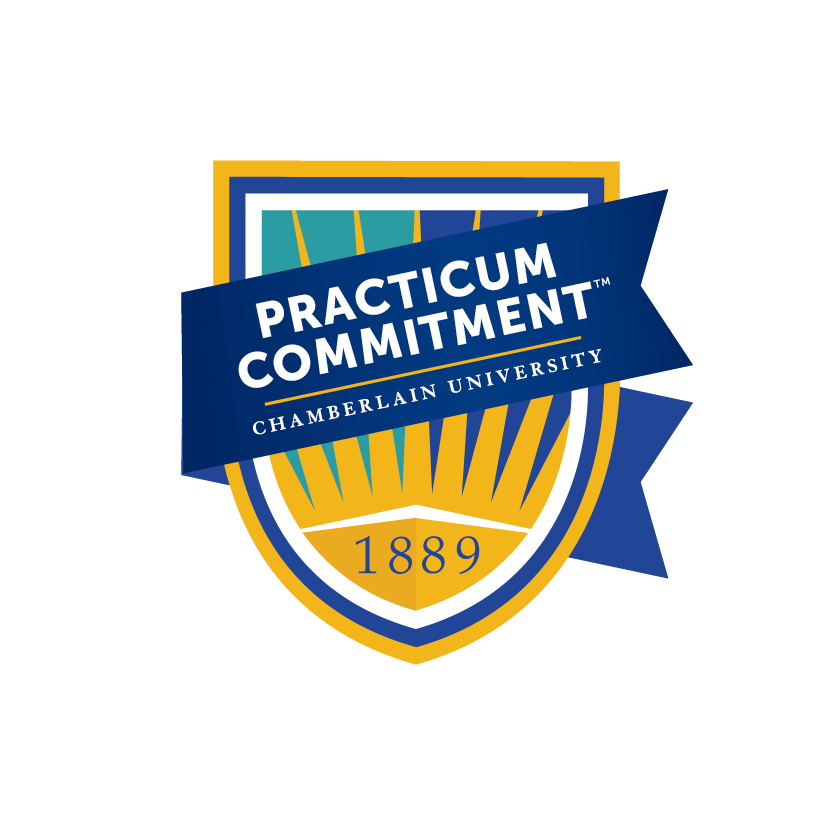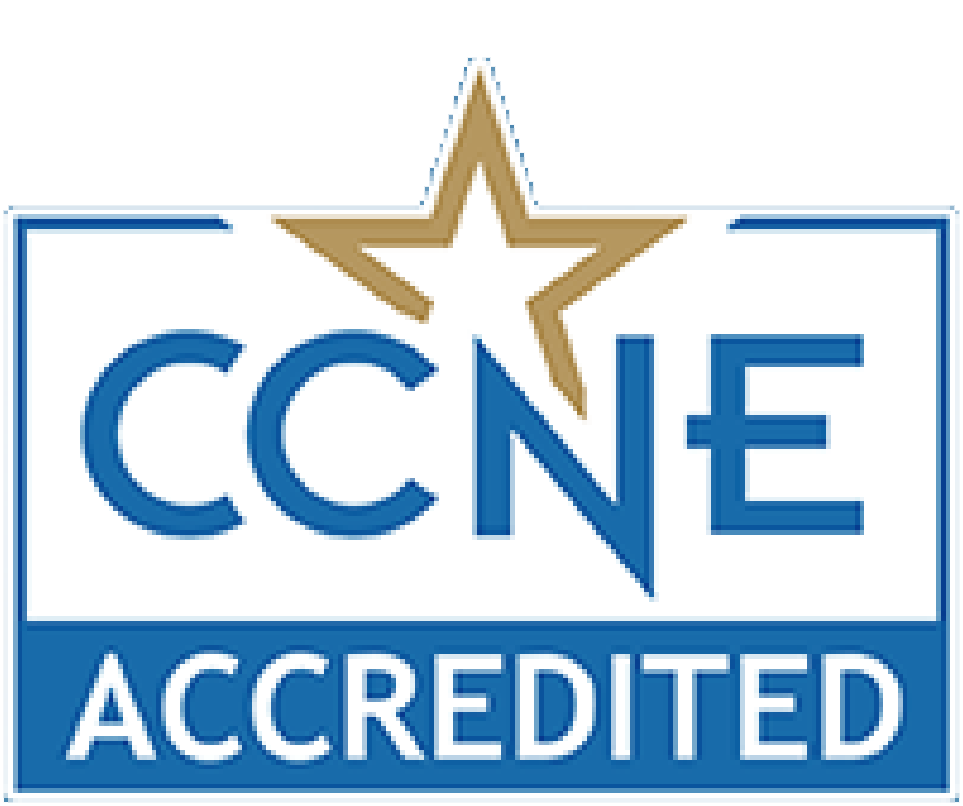Family Nurse Practitioner Courses

Ask a Student
What was your experience like with the preceptor matching service?
“The matching service is really, really helpful. It decreases the stress and anxiety, and I had a really good experience with the preceptor I matched with.”
Restituto V.
‘20 Graduate, MSN FNP

Ask a Student
How would you describe your immersion experience?
“I got to put faces to names of my online classmates and get more comfortable with advanced practice skills. Can’t wait to get started with clinical rotations next year!”
Gaelle M.
‘18 Graduate, MSN FNP
MSN FNP Admission FAQ
Up to six semester hours may be eligible for transfer into Chamberlain’s MSN FNP program. Transfer credits may only fulfill core course requirements and are evaluated on a case-by-case basis. Learn more in our transfer guide.
You can earn your MSN FNP degree in less than three years, or eight semesters, of full-time study, taking two courses per semester for three semesters each year. Some students choose to space out the program requirements and take longer to complete their studies.
Once you complete the application process for FNP school, your admission representative will provide you with information on how to identify a potential practicum site and preceptor. You will also be matched with a dedicated team to support you in securing your practicum site and preceptor.
Are you an RN and love your job, but also feel ready to expand as a medical professional? There are many reasons to consider becoming FNP. But, what is a Family Nurse Practitioner? The family nurse practitioner’s scope of practice is quite diverse, allowing for career mobility, specialization in a specific patient demographic, and practice in a variety of clinical settings.
An Accredited FNP Program
View Chamberlain’s accreditation and state authorizations
Chamberlain University accredited by the Higher Learning Commission (HLC), www.hlcommission.com an institutional accreditation agency recognized by the U.S. Department of Education.
Chamberlain University confers online degrees from its Main Campus in Addison, IL.
Practicum option availability varies by state/location. Chamberlain reserves the right to update information as it becomes available. For a complete list, and to learn more, check out our authorizations or view our approvals in your state.
Distinguished Accreditations
Chamberlain University College of Nursing was named a Center of Excellence™ in Nursing Education by the National League for Nursing for promoting the pedagogical expertise of faculty.
Frequently Asked Questions About FNP School
An FNP stands for family nurse practitioner. Family nurse practitioners are advanced practice registered nurses (APRNs) who focus on comprehensive healthcare for families across all ages, body systems and diseases. Read more.
Family nurse practitioners deliver a range of acute, chronic and preventive healthcare services. In addition to diagnosing and treating illness, FNPs perform routine checkups, health-risk assessments, administer immunizations and screening tests. They offer personalized counseling on maintaining a healthy lifestyle and education in the prevention of illness. Read More
An MSN FNP stands for Master of Science in Nursing - Family Nurse Practitioner. This degree program prepares you for a career as an FNP.
Graduates of the Chamberlain University Master of Science in Nursing (MSN) program’s Family Nurse Practitioner (FNP) specialty track can sit for the FNP national certification exam from either the American Nurses Credentialing Center (ANCC) or the American Association of Nurse Practitioners (AANP). After successfully passing the exam, they will then be eligible for state licensure.
FNPs work in a leadership position in a healthcare team, though in some states they practice collaboratively with a medical doctor. They normally perform many tasks RNs cannot, including diagnosing disease, ordering tests and prescribing medications.
Once you complete the coursework and clinical hours required to earn an FNP degree, you will sign up for board exams through the American Association of Nursing Practitioners (AANP) or the American Nurses Credentialing Center (ANCC). Upon passing this exam and meeting all of your state’s licensing requirements, you will be a family nurse practitioner.
In Chamberlain’s online FNP program, 100% of coursework is completed online. This online coursework is complemented by two in-person weekends, as well as your on-site practicum experience.
Yes. A family nurse practitioner can become a psychiatric-mental health nurse practitioner through a graduate certificate program like the one offered at Chamberlain University. Chamberlain’s Graduate Certificate in Psychiatric-Mental Health Nurse Practitioner (PMHNP) program provides a pathway to career change or enhancement for nurses who already hold a master’s or doctoral degree in nursing.
Looking for something else?
Explore our related programs.








